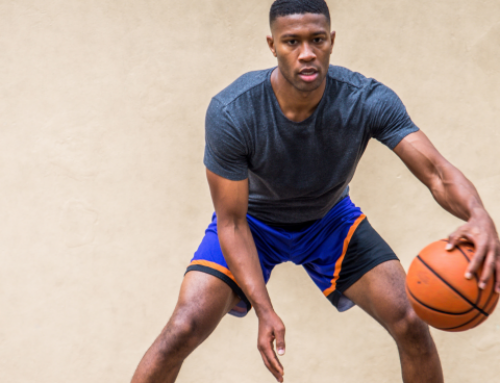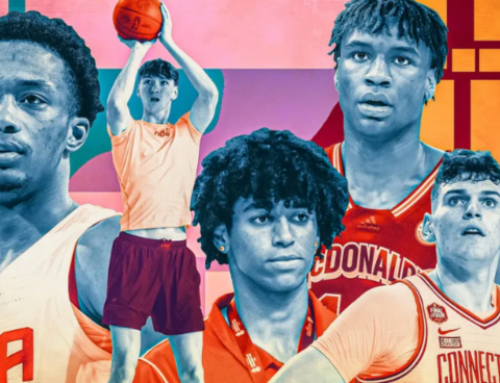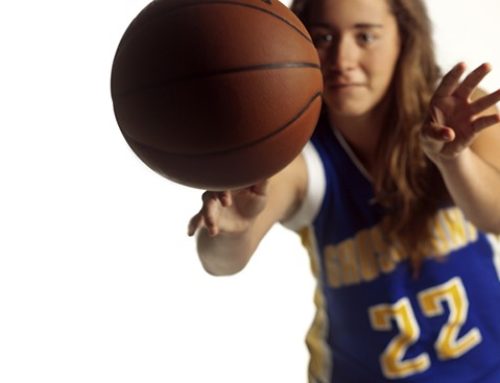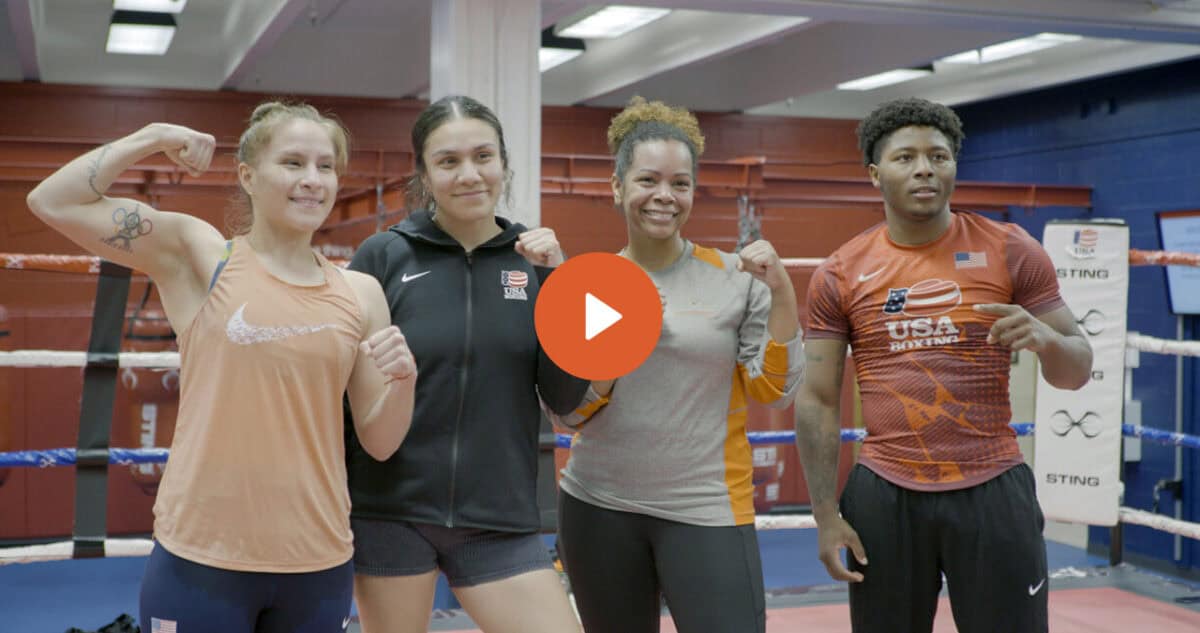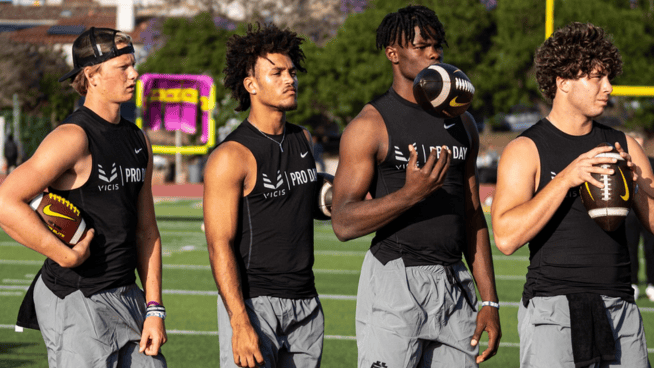How to Pick A Summer Basketball Camp
It’s time to start planning for summer activities. For parents of high school and elementary students, this means finding something to keep them busy throughout the day. While for some kids, this means multi-sport camps or multi-activity programs. For basketball enthusiasts, it means time to spend anywhere between three to six hours a day in the gym working on adding something to their “basketball toolbox.”
Private coaches, community programs, schools, and professional basketball stars are preparing registration and information for their annual summer camps set to kick off in just four months. As a player, are you just looking for something to do with your buddy to keep busy, or are you looking to improve your skills? So the ultimate question becomes, which one is the right fit for you?
Make Sure Your Athlete Wants To Be There
Word of advice: I have worked at hundreds of different camps throughout my coaching career at various levels. If I can give a straightforward piece of advice to parents and players, it would be to make sure you want to be there. At one camp, I had a young boy who had absolutely no interest in basketball. Despite all of the best efforts from the entire coaching staff, he spent the first two days sitting in the bleachers reading a book. Even after talking to his mother on day one, she was adamant about returning him for day two. Eventually, she listened to the coaches and administrators and removed him from the camp.
Athletes Level of Talent
Every parent thinks of their child as a star. It’s natural. However, that does not mean, in reality, they are ready to jack threes and hit a step back cross-over fade away when they clearly struggle to make a simple layup. Ensure that when you sign up for the camp, you check out the different levels that they may be offering. Introduction and high-performance come with two totally different levels of expectations and skillsets. While it is good to challenge yourself, do not try to play with the pros when you are clearly a beginner. At the same time, if you have years of experience, you are just wasting your time in a camp dedicated to newbies.
Exposure Camp
An exposure camp or ID camp is different from your typical skills development camp. The primary focus is exactly what the name entails, giving you exposure to potential future coaches. Often camps like these are held at universities or by the coaches themselves.
Coaching Staff
Finding out the background of the coaching staff is essential. While not all great coaches were great players, knowing how long they have been involved with the game and coaching is vital to making sure that you come away with money and time well spent. Ask around or even Google the coaches. Are you a big man? Would you want to go to a camp taught by a point guard or even vice versa? If your focus is to improve your skills, there is no point in going to a camp that focuses primarily on the perimeter game.
Bang For Your Buck
First things first, you have to determine how much money you are willing to spend. Whether they are half-day or full-day camps, entry fees can range between $150-$300 or even more. While it shouldn’t be a determining factor, you may get additional items for your entry fees, such as a camp t-shirt, competition prizes, written player evaluation, and snacks. Although taking part in the camp should be to get better at basketball, sometimes the extra bells and whistles are a nice bonus.
Player / Coach / Hoop Ratio
It’s essential to know how many coaches will participate in the camp and how much attention you will be receiving. Most camps offer anywhere between an 8-12 coach/player ratio. If it’s more than that, you have to wonder how much attention to detail you are really getting as a player and parent. The same can be said for the facility. Suppose there are only two hoops and thirty kids. In that case, it’s going to be hard to get enough quality shooting reps to make it worth your time, as opposed to standing around waiting for a lineup of kids to put up one shot.
Teaching Time
If your mind is set on joining a basketball camp just to play games, you may want to reconsider why you are actually going. For most, the purpose of going to a basketball camp is to learn or improve on skills from different coaches that you might not normally associate with. For some, this might not seem to be the most fun thing to do, but the way to get better is to repeat drills over and over again. As Bruce Lee once said, ” I fear not the man who practiced 10,000 kicks once, but I fear the man who practiced one kick 10,000 times.” While you can learn from playing in games if that is the camp’s primary focus, rather than one that has an environment that promotes learning, instruction, and an opportunity to break down your game.
Game Time
There is an opportunity to learn from playing games, but players can find games anywhere at any time. School, parks, rec centers all offer countless chances to play games. Ask the coaches or camp organizer how many games or hours will be dedicated to playing games. Also, find out what types of games will be played as 5-5 team games are different from 3-3 or 1-1 games. If players are going to play, mixing up various competitions will offer a different thought process and opportunity to work on skills. It is easy for players to “hide” in 5-5 games, but with fewer players on the court, the more they will have the ability to handle, shoot, pass and play on the ball defense.
Change is Good
If you have been going to the same camp year after year, chances are your game may not have evolved as much as it could have. Try traveling to a camp in a different city where your friends and others you are familiar with aren’t going to. Challenging yourself to unknown competition and a new coaching style will help you improve as a player. There will come a time in which your high school or elementary school friends and teammates will be by your side.
Off-Court
Coaching and learning sports isn’t always about results on the court, but for the majority, the lessons learned will transfer to life off of it. Only a tiny percentage of young players will move on to play post-secondary basketball. Still, the life skills and character-building lessons that they receive during camps can be carried with them for a lifetime. Simple skills like listening, comprehension, teamwork, positivity, and fighting through adversity are just some of the many equally important skills to future coaches or employers as being able to dribble and shoot.
Overnight Camps
Whether they are a team or individual camp, many cities have programs that offer overnight camps, which allow players a full schedule of activities. If you are looking to take part in an overnight camp, there are some things you should consider. Supervision, medical staff, sleeping facilities and rules, food, washrooms/showers are all important off-court aspects you need to look into. You also need to look into the activities that are offered during downtime.
As with most things in life, picking the right basketball camp falls under the “trial and error” rule. What is right for someone else isn’t always right for you. While it is good to take advice and suggestions from others, only you can tell if the camp has been worth your time and money at the end of the day.
RECOMMENDED FOR YOU
MOST POPULAR
How to Pick A Summer Basketball Camp
It’s time to start planning for summer activities. For parents of high school and elementary students, this means finding something to keep them busy throughout the day. While for some kids, this means multi-sport camps or multi-activity programs. For basketball enthusiasts, it means time to spend anywhere between three to six hours a day in the gym working on adding something to their “basketball toolbox.”
Private coaches, community programs, schools, and professional basketball stars are preparing registration and information for their annual summer camps set to kick off in just four months. As a player, are you just looking for something to do with your buddy to keep busy, or are you looking to improve your skills? So the ultimate question becomes, which one is the right fit for you?
Make Sure Your Athlete Wants To Be There
Word of advice: I have worked at hundreds of different camps throughout my coaching career at various levels. If I can give a straightforward piece of advice to parents and players, it would be to make sure you want to be there. At one camp, I had a young boy who had absolutely no interest in basketball. Despite all of the best efforts from the entire coaching staff, he spent the first two days sitting in the bleachers reading a book. Even after talking to his mother on day one, she was adamant about returning him for day two. Eventually, she listened to the coaches and administrators and removed him from the camp.
Athletes Level of Talent
Every parent thinks of their child as a star. It’s natural. However, that does not mean, in reality, they are ready to jack threes and hit a step back cross-over fade away when they clearly struggle to make a simple layup. Ensure that when you sign up for the camp, you check out the different levels that they may be offering. Introduction and high-performance come with two totally different levels of expectations and skillsets. While it is good to challenge yourself, do not try to play with the pros when you are clearly a beginner. At the same time, if you have years of experience, you are just wasting your time in a camp dedicated to newbies.
Exposure Camp
An exposure camp or ID camp is different from your typical skills development camp. The primary focus is exactly what the name entails, giving you exposure to potential future coaches. Often camps like these are held at universities or by the coaches themselves.
Coaching Staff
Finding out the background of the coaching staff is essential. While not all great coaches were great players, knowing how long they have been involved with the game and coaching is vital to making sure that you come away with money and time well spent. Ask around or even Google the coaches. Are you a big man? Would you want to go to a camp taught by a point guard or even vice versa? If your focus is to improve your skills, there is no point in going to a camp that focuses primarily on the perimeter game.
Bang For Your Buck
First things first, you have to determine how much money you are willing to spend. Whether they are half-day or full-day camps, entry fees can range between $150-$300 or even more. While it shouldn’t be a determining factor, you may get additional items for your entry fees, such as a camp t-shirt, competition prizes, written player evaluation, and snacks. Although taking part in the camp should be to get better at basketball, sometimes the extra bells and whistles are a nice bonus.
Player / Coach / Hoop Ratio
It’s essential to know how many coaches will participate in the camp and how much attention you will be receiving. Most camps offer anywhere between an 8-12 coach/player ratio. If it’s more than that, you have to wonder how much attention to detail you are really getting as a player and parent. The same can be said for the facility. Suppose there are only two hoops and thirty kids. In that case, it’s going to be hard to get enough quality shooting reps to make it worth your time, as opposed to standing around waiting for a lineup of kids to put up one shot.
Teaching Time
If your mind is set on joining a basketball camp just to play games, you may want to reconsider why you are actually going. For most, the purpose of going to a basketball camp is to learn or improve on skills from different coaches that you might not normally associate with. For some, this might not seem to be the most fun thing to do, but the way to get better is to repeat drills over and over again. As Bruce Lee once said, ” I fear not the man who practiced 10,000 kicks once, but I fear the man who practiced one kick 10,000 times.” While you can learn from playing in games if that is the camp’s primary focus, rather than one that has an environment that promotes learning, instruction, and an opportunity to break down your game.
Game Time
There is an opportunity to learn from playing games, but players can find games anywhere at any time. School, parks, rec centers all offer countless chances to play games. Ask the coaches or camp organizer how many games or hours will be dedicated to playing games. Also, find out what types of games will be played as 5-5 team games are different from 3-3 or 1-1 games. If players are going to play, mixing up various competitions will offer a different thought process and opportunity to work on skills. It is easy for players to “hide” in 5-5 games, but with fewer players on the court, the more they will have the ability to handle, shoot, pass and play on the ball defense.
Change is Good
If you have been going to the same camp year after year, chances are your game may not have evolved as much as it could have. Try traveling to a camp in a different city where your friends and others you are familiar with aren’t going to. Challenging yourself to unknown competition and a new coaching style will help you improve as a player. There will come a time in which your high school or elementary school friends and teammates will be by your side.
Off-Court
Coaching and learning sports isn’t always about results on the court, but for the majority, the lessons learned will transfer to life off of it. Only a tiny percentage of young players will move on to play post-secondary basketball. Still, the life skills and character-building lessons that they receive during camps can be carried with them for a lifetime. Simple skills like listening, comprehension, teamwork, positivity, and fighting through adversity are just some of the many equally important skills to future coaches or employers as being able to dribble and shoot.
Overnight Camps
Whether they are a team or individual camp, many cities have programs that offer overnight camps, which allow players a full schedule of activities. If you are looking to take part in an overnight camp, there are some things you should consider. Supervision, medical staff, sleeping facilities and rules, food, washrooms/showers are all important off-court aspects you need to look into. You also need to look into the activities that are offered during downtime.
As with most things in life, picking the right basketball camp falls under the “trial and error” rule. What is right for someone else isn’t always right for you. While it is good to take advice and suggestions from others, only you can tell if the camp has been worth your time and money at the end of the day.

